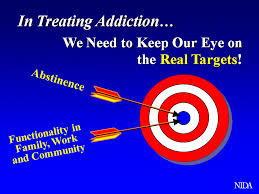The process of inhibiting occurrence of alcohol withdrawal
The process of inhibiting occurrence of alcohol withdrawal: Why it is necessary to put to check alcohol withdrawal

The process of inhibiting occurrence of alcohol withdrawal has become very necessary owing to the sufferings alcohol is imposing on individuals health
While looking at the mechanisms of preventing alcohol withdrawal in the previous article, we were able to find out about the three levels of alcohol withdrawal and right now we want to continue with the same discussion under the topic “the process of inhibiting occurrence of alcohol withdrawal.” This is very important since it has been established that alcohol is one of the substance which can be very fatal during the withdrawal process. Ours is to help you get the right information about these threats so that you may take precautionary action in good time. At this point of time we can’t plead ignorant of the dangers of misuse of alcohol because a part from these health information, every advert mounted on the advertisements platforms will be very glittering but in that glitters, there will be a warning remark that excess alcohol consumption is harmful to your health. As it is the norm in this site, doctor Dalal Akoury the MD and founder of AWAREmed Health and Wellness Resource Center will be taking us through the discussion to unlock some of the hidden concerns we have progressively.
The process of inhibiting occurrence of alcohol withdrawal: What Causes Alcohol Withdrawal?
In many cases alcohol withdrawal is caused by neurotransmitter rebound. When alcohol overpowers the action of a neurotransmitter system over a long period of time the neurotransmitter system adjusts by working extra harder to defeat the effect of the alcohol and to try and function at normal levels in spite of the presence of the alcohol. When the alcohol is suddenly removed from the body the neurotransmitter system still continues to function far in excess of normal levels. Since alcohol is no longer present to suppress the effects of this hyperactivity, what we now see are effects which are precisely the opposite of those caused by alcohol. Just for a better understanding, let us illustrate this with the game of tug of war where two parties pool at a balanced position, in this game, if one party let loose the rope unexpectedly, then their opponents will fly in the opposite direction, in the same way, when alcohol is suddenly eliminated from the neurotransmitter system to which alcohol has been fighting to overcome its effects, the neurotransmitter will fly also in the opposite direction.
According to the experts at AWAREmed Health and Wellness Resource Center, the main neurotransmitter system involved in alcohol withdrawal is the GABA system. The effects of alcohol on GABA system lead to relaxation, sleep, calm, and the soothing of panic. When alcohol is suddenly removed from the brain then the neurotransmitter rebound in the GABA system leading to insomnia, nightmares, hallucinations, anxiety, panic, muscle cramps, and seizures. Remember that benzodiazepines will affect the GABA system in a much similar way as doe’s alcohol and this is why benzodiazepine withdrawal is also life-threatening.
The process of inhibiting occurrence of alcohol withdrawal: The odds of going through alcohol withdrawal
What is the likelihood that you will go through life-threatening alcohol withdrawal if you suddenly stop drinking? The more that you drink per day and the more consecutive days that you drink, the more likely you are to go through alcohol withdrawal. If you never drink two days in a row you will not go through alcohol withdrawal. Drinking every night increases your chances of undergoing withdrawal. And drinking both morning and night every day of the week increases the odds of going through withdrawal even more.
Women are more sensitive to the negative effects of alcohol than are men. Like for instance if you are a woman of average weight and you have been drinking 6 standard drinks a day every day for a month then you have about a fifty-fifty chance of going through minor withdrawal, but it probably won’t be life threatening. On the other hand a woman who has been drinking 11 standard drinks a day for a month has about a fifty-fifty chance of going through major life threatening withdrawal. If you have been drinking a shorter period of time then you will have to have drunk more per day to be in danger of withdrawal. A woman who has 8 standard drinks per day every day for a week has about a fifty-fifty chance of having minor withdrawal whereas a woman who drinks around 15 standard drinks a day daily for a week has about a fifty-fifty chance of having major withdrawal. There is little chance of withdrawal for anyone who has been drinking for less than three days in a row.
As for men, they will have to drink more than women to get withdrawal syndrome. Therefore if you are a man of average weight and you drink 8 standard drinks a day for a month you are in danger of minor withdrawal symptoms. If you drink 13 a day for a month then you have about a fifty-fifty chance of having major life threatening withdrawals. Drinking 10 a day for a week will lead to minor withdrawal and 18 a day for a week to major life-threatening withdrawal. From the discussion so far it is very evident that alcohol misuse can be very devastating to human health. To keep distance with such frustrations, it will do you good to seek for help from the professionals who really understand the problem you are struggling with. Doctor Akoury has been in this profession for more than two decades now and has been of great help to many people globally. You can become one of the many who consulted with her and had their lives completely transformed to their comfort and fulfillment. If you or any one you know is struggling with any form of addiction, it doesn’t have to be about alcohol alone, but any substance of abuse then you are the right candidate to schedule for an appointment with doctor Dalal Akoury today for quick and professional remedy to whatever you are going through. Call right away and be the first to have your health back for enjoyment and comfort.
The process of inhibiting occurrence of alcohol withdrawal: Why it is necessary to put to check alcohol withdrawal















